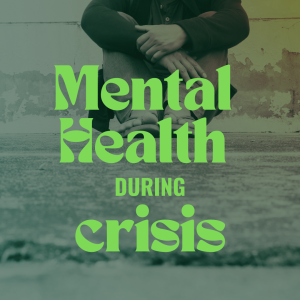Universities, they say, are a different world entirely.
Different from the life a 16–18-year-old knows. But they never prepare these young minds for the weight of that difference, before they start it, while they’re in it, or even after they leave it.
You enter this new world with dreams, with hope, with energy. But soon, you’re introduced to a different reality of uncertainty, chaos, competition, and silence. It’s a world that demands a lot and gives very little back, especially when it comes to your mental health.
The Pressure is Quiet but Loud
No one really talks about how exhausting it can be to be a student in Nigeria. They tell you to read your books, avoid bad friends, and make your parents proud. But they don’t tell you how to survive weeks of endless lectures and putting up with whatever attitude different lecturers bring with no mental break. Or how to deal with a strike that pauses your life and pushes back your plans. Or how to juggle assignments, family pressure, a side hustle, and a body that’s always tired.
Some days, you go to class feeling heavy. Not because of your load of books in your bag, but because of the ever-increasing pressures in your mind. Worry. Fear. Loneliness. Performance anxiety. The pressure to succeed. The fear of failure. They just keep piling up. But you show up. Because that’s what you’ve been taught to do.
Coping, Because What Else Can You Do?
Most Nigerian students don’t have access to structured mental health support. So, they cope in their own unique ways. Some find quiet comfort in journaling, listening
 to music, talking to a roommate, or scrolling through affirmations online. Others try to drown it all out, with noise, with substances, with distractions. For
to music, talking to a roommate, or scrolling through affirmations online. Others try to drown it all out, with noise, with substances, with distractions. For
many, the choice isn’t between good and bad, it’s solely something or nothing. And then, there are those who simply go numb. Who no longer feel joy, but can still laugh. Who doesn’t cry, but can’t sleep. Who function, but are not fine.
The Large Unrecognised Support Gap
You would think that universities, the place where minds are shaped, would care deeply about mental health. But the reality is, most don’t. Ask around, how many campuses have accessible, functional counselling units? If they do, how many students feel confident enough, comfortable enough to make use of these provisions without the fear of it being used against them? How many students even know where to go when they’re mentally unwell? And even when someone gathers the courage to ask for help, they’re often told, “You’ll be fine, just rest”, or “You need prayers.”
There’s so much noise around success and grades, but very little around sanity and peace of mind. Institutions put out posters about drug abuse and suicide awareness once in a while, but how many take time to teach emotional literacy, resilience, balance or even how to ask for help?
Mental Illness in Silence
It becomes easy to miss it because students become experts at masking. But it’s there. Depression shows up as withdrawal. Anxiety looks like irritability. Burnout hides behind a busy schedule.
You hear stories:
- The student who suddenly stopped attending lectures.
- The one who fainted from exhaustion.
- The girl who smiles all the time but says, “I’m tired” too often.
- The boy who’s always the class clown but goes quiet for days.
These are not random events. They’re symptoms. But nobody is paying attention.
What Needs to Change?
Mental health should not be a private struggle on campus. There has to be a collective response.
Universities must
- Provide trained and accessible counselors.
- Create non-judgmental, stigma-free support spaces.
- Equip lecturers and hostel managers with basic mental health training.
- Talk about mental health before it becomes a crisis.
Students also need:
- To be constantly reminded that rest is not weakness.
- To unlearn the fear of asking for help.
- To know that their emotions are valid, even when no one affirms them.
Seek Help from Mental Health Professionals
Academic stress can be overwhelming, expectations may not be met, and failure can feel discouraging and frustrating. However, reaching out to qualified mental health professionals can be a game-changer. With the right support, they can regain clarity, strengthen their mental well-being, and confidently overcome challenges on the path to academic success.


